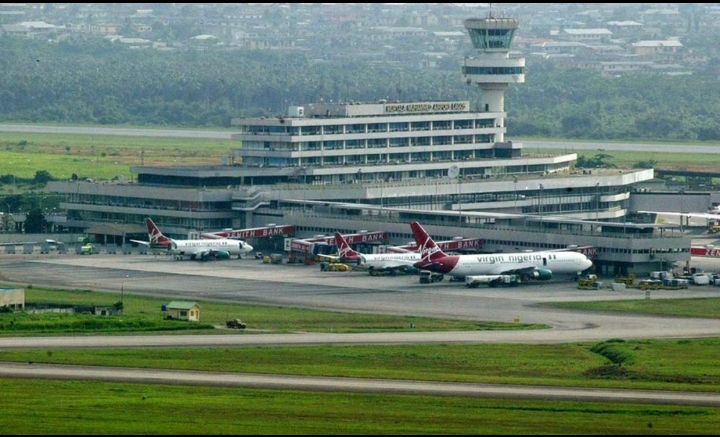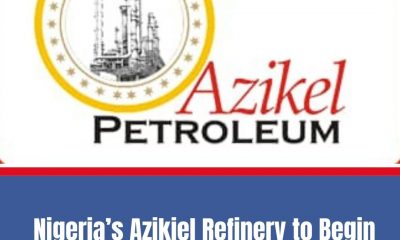Business
Airline operators show concern as aviation fuel prices rise to N780 per liter.

Ibekimi Oriamaja Reports.
Domestic airlines in Nigeria, represented by the Airline Operators of Nigeria (AON), have requested that the federal government approve the removal of fuel surcharges in order to address the persistently high cost of aviation fuel.
This comes as the price of the commodity, which was sold at N200 in February of this year, has risen to N780 today.
According to AON, approval for a fuel surcharge will help cushion the impact of the exorbitant price of aviation fuel on airline production.
According to a statement addressed to the Director-General of the Nigerian Civil Aviation Authority (NCAA), Captain Musa Nuhu, and sent to press by its President, Alhaji Abdulmunaf Yunusa Sarina, the operators have requested that the 5% fuel surcharge they have been paying to the NCAA be removed.
However, the operators linked the latest action to an increase in the price of aviation fuel and a lack of access to forex, as well as the subsequent impact on the cost of their operations.
“The Airline Operators of Nigeria hereby wish to seek your kind approval of a fuel surcharge as an ameliorative measure to cushion the effect of the continuous increase in the exorbitant price of Jet A1 on airline operations in the country,” the statement says.
Alhaji Sarina went on to say that, in addition to the crippling effect of intermittent Jet A-1 shortages, the price has risen from N200 per litre in February 2022 to more than N780 today.
He noted that this has increased the operational costs of airlines by more than 130 percent, yet airlines are unable to raise fares and are also hampered by a lack of foreign exchange to conduct their operations.
According to the statement, “in order to avoid a backlash and a total shutdown of the system, airlines are hoping to implement a fuel surcharge of 25 percent – 40 percent of NUC as a way of offsetting the additional burden brought about by increased fuel cost, bearing in mind that jet fuel accounts for about 40 percent of total operational expenses.”
The body then sought the regulatory agency’s understanding and support “by reconsidering and reviewing the decision that airlines are required to obtain approval for an initial three (3) months before implementing a fuel surcharge, with a waiver of the demand that airlines pay an additional 5% on the fuel surcharge completely separate from the 5% Ticket Sales Charge” (TSC).
“Unless this is done,” he says, “whatever is collected by the airlines as a fuel surcharge to cushion the effect of the high fuel price will be taken away once more by NCAA.” In effect, airlines will be in double jeopardy because they will be unable to offset the additional cost that the fuel surcharge is intended to address in the first place.”
As a result, the operators proposed that taxes be levied on the portion of the fare due to airlines less the fuel surcharge, which is specifically designed to mitigate the impact of rising fuel prices, rather than on the total paid for the ticket including the fuel surcharge (i.e. Fuel Surcharge should be exempted from TSC).
Given the importance and urgency of this issue, may we use this medium to request an urgent meeting with airline CEOs to address it as soon as possible? the operators demanded
“We, therefore, request that you favorably consider and kindly affect our proposal to assist in alleviating the sufferings of airlines in the country given the current scarcity and the consistently rising cost of JetA1,” he said. This is common practice all over the world, most notably in the United Kingdom, America, and Singapore.
-

 Politics4 days ago
Politics4 days agoPROPHESY TO PRESIDENT BOLA AHMED TINUBU ABOUT 2027
-

 News4 days ago
News4 days agoFamily, Friends Celebrate Jailed Former Deputy Senate President, Ike Ekweremadu’s Birthday
-

 Business2 days ago
Business2 days agoNigeria’s Azikiel Refinery to Begin Operations in 2025
-

 Business5 days ago
Business5 days agoBaraza: Bribena pleads for understanding, highlights solutions to organization’s problems
-

 News7 days ago
News7 days agoBaraza Cooperative Disputes Becky Buodeigha’s Claims, Cites Pattern of Dishonesty
-

 Politics4 days ago
Politics4 days agoFubara Swears-in Dagogo as Attorney-General, to Probe Wike’s 8 Years As Governor
-

 Politics1 day ago
Politics1 day agoYou Have a Few Days to go, Gov. Fubara Tells LGA Chairmen
-

 Business4 days ago
Business4 days agoGunmen kidnap Dangote cement workers in Edo




